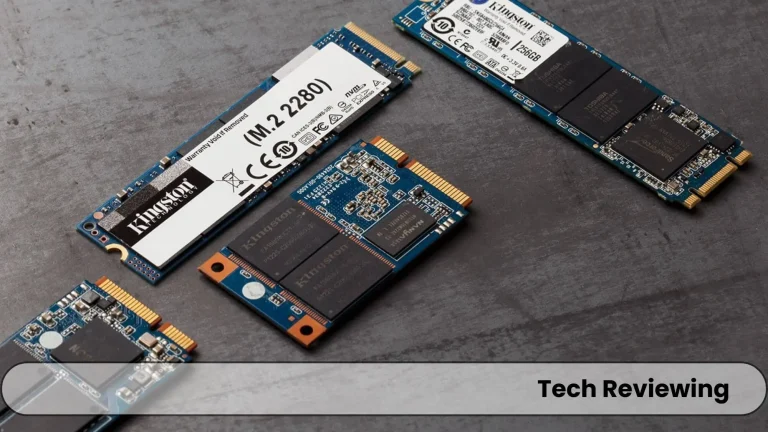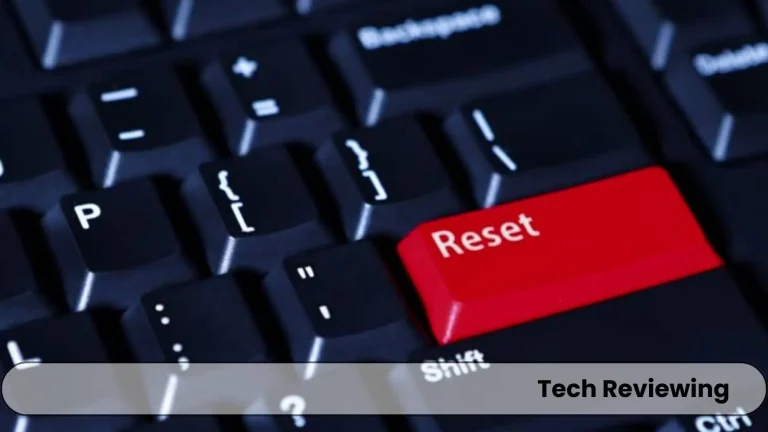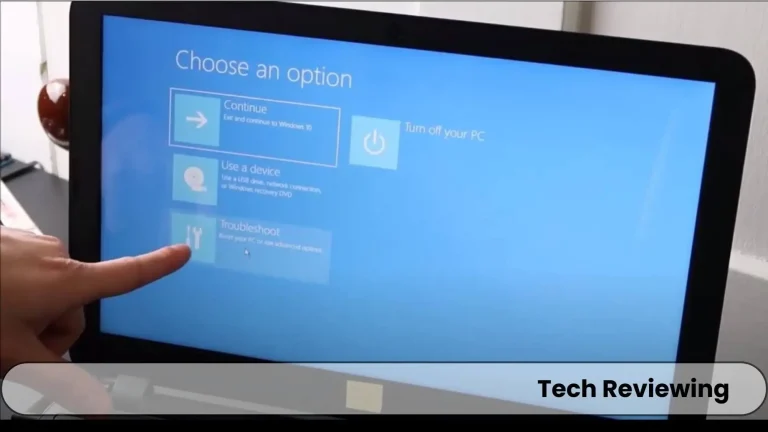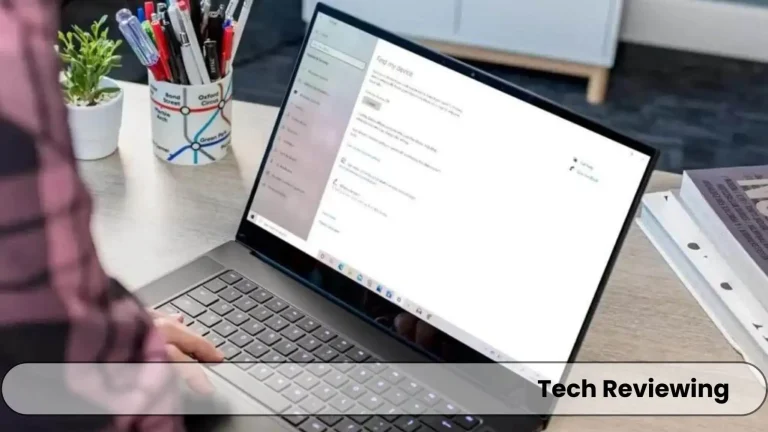How to Detect if Laptop is Hacked?
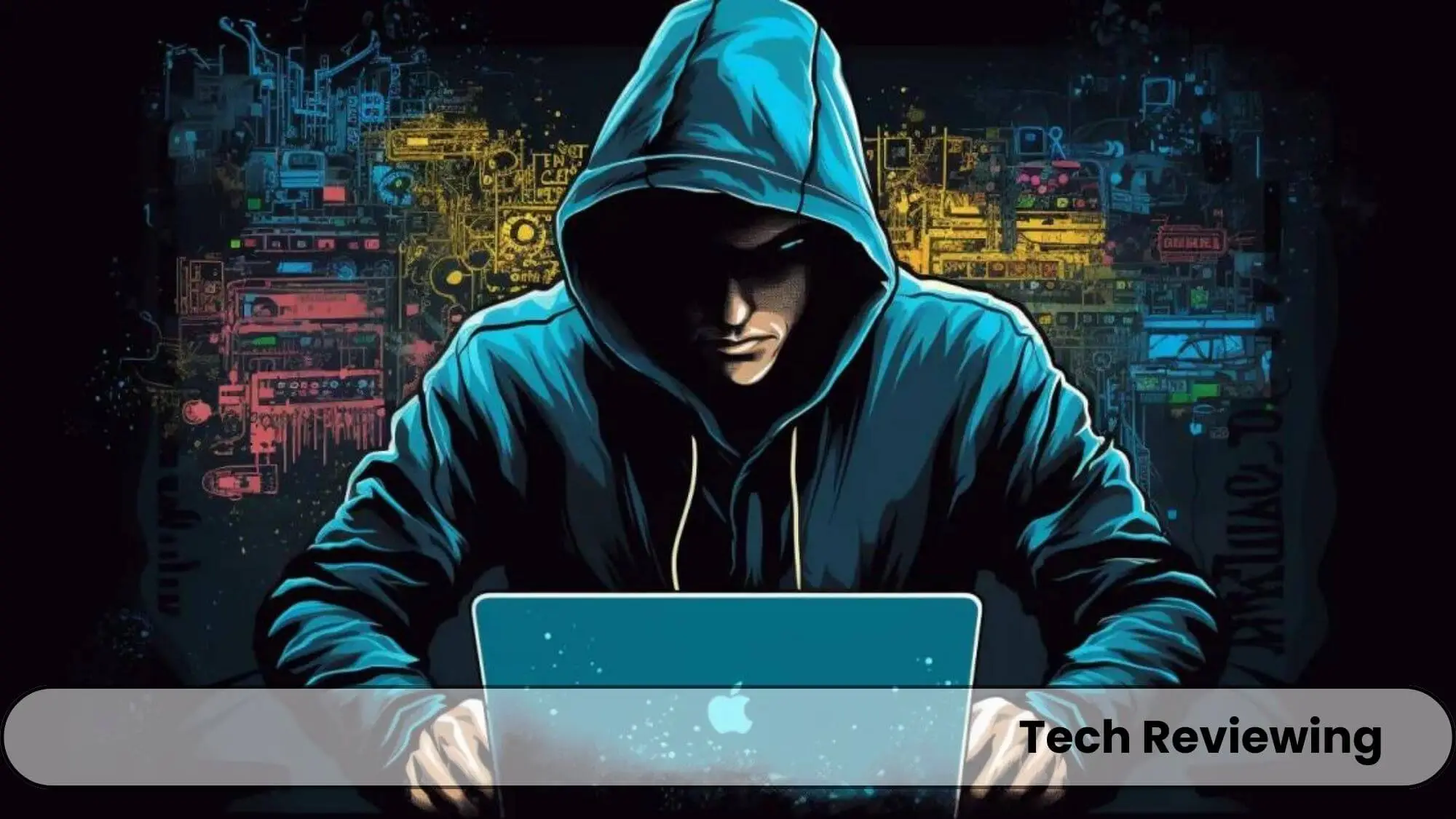
Feeling like your laptop’s acting possessed? you must have clicked on that suspicious link. Now you’re worried your laptop might be compromised.
Here’s how to detect a hack if you are facing Unfamiliar programs or a weird browsing history that could show signs of a hack.
One of my gamer friends faced this issue when he installed a game from an unknown source and noticed his laptop was not behaving normally and running some suspicious programs in the background.
I and my team tested some methods to check it and thought why not share those with you guys so you can also check when you doubt about a hack?
Let’s dive into the methods of checking!
Deceptive Display of Normality
It is like walking into your own house after a long vacation and seeing everything in place where you left it.
But if you look closer and dig deep in the inspection you notice clues of someone in your house such as a window left open, some misplaced items, or smelling different scent which shouldn’t be there
The same is the case with laptops! You will not see signs of a hacked laptop as you watch in Hollywood movies that portray hacking as a dramatic event.
Most certainly hacked laptop will not exhibit any signs of distress. They might even manipulate your system to appear more responsive than before.
You have to spot the warning signs that appear on your laptop in the form of a sluggish feeling of laptop when websites take time when load or your laptop might crash more often.
These sneaky signs are of hacked laptops which we found on our friend’s laptops.
Unusual System Behavior
Recognizing Subtle Performance Dips:
You will experience occasional slowdowns which we also detected in our friend’s laptops when laptops are overworked.
But these slowdowns become persistent and unexplained which is a sign of a hacked laptop, it’s time that we know we have been hacked. Here’s what to watch out for:
- The Laggy Labyrinth: You will navigate your laptop is slow and clicks will take an eternity to register, programs will launch at a snail’s pace which is not common, and you will feel sluggish web browsing, these all are signs that your system is bogged down by malware or unauthorized processes so be ready to fix it.
- The Eternal Load: When you open a software or program then you constantly stare at loading screens and progress bars while it loads and takes a huge amount of time. This is also a sign that your hard drive or memory is being overloaded by malicious activity via hackers or viruses spread by hackers.
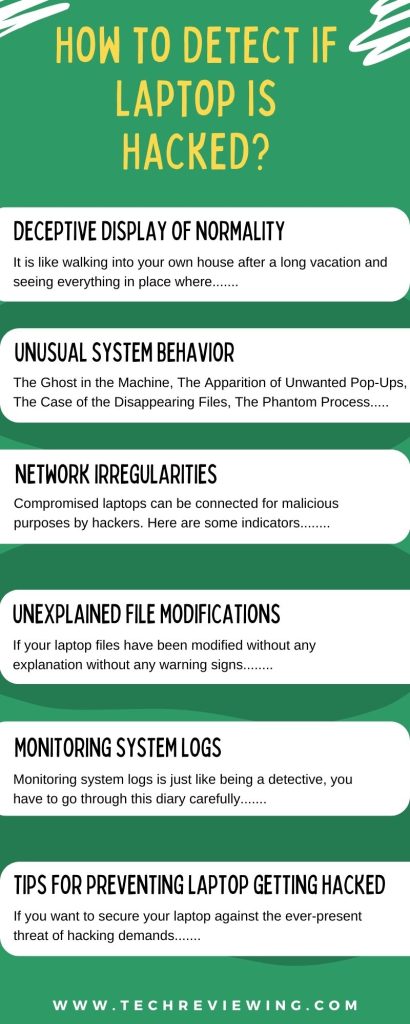
Investigating Resource Utilization Anomalies
Your laptop’s resources, like CPU usage and memory consumption range, will increase a lot when your laptop is hacked. Here’s how to spot resource anomalies:
- The Case of the Overworked CPU: As you know the CPU (Central Processing Unit) is the brain of your laptop. When your laptop is hacked then Task Manager will consistently show extremely high CPU usage, even when you’re not running any high-usage demanding programs, it is also a sign of malware or unauthorized processes which are hogging your resources.
- The Memory Monster: Memory (RAM) is your laptop’s short-term storage as you know. If your RAM usage is constantly maxed out then you can’t do anything but wait a bit to make space in it, when you haven’t opened many programs, it is an indicator of hidden processes or malware that is consuming available memory.
- The Disk Drive Dilemma: If your hard drive activity lights start suddenly spiking? This erratic behavior can be a sign of malware accessing or hackers could have modified files on your system.
Identifying Sudden and Frequent Shutdowns: When the Curtains Fall Abruptly
You will never face Unexpected shutdowns in normal laptop usage and these are not ideal, but if it happens frequently and unexplained, it’s a cause for concern.
Here’s what I looked at on my friend’s laptop and what you should look out for:
Network Irregularities
Compromised laptops can be connected for malicious purposes by hackers. Here are some indicators I have discovered from my experience that you can use in your network activity.
Monitoring Data Consumption Patterns
You can check irregularities in your laptop network with my step-by-step guide.
If you see data usage spikes in your laptop’s network then it can be a sign of an unauthorized data breach by someone.
I suggest you install network monitoring tools for checking unusual data usage in your laptop network.
Identify Unfamiliar Devices on the Network
If you have access to the router interface then you should examine the devices connected to your router.
If you find any of the devices which you don’t recognize then it is a potential security threat.
Well, Most operating systems have built-in tools or you can download applications that display network activity on your laptop.
You can easily use these tools to identify unknown devices or IP addresses that your laptop is connecting to through your router.
If you see any connections then it can be a sign of malware or hackers establishing a backdoor into your system which will lead to infecting your laptop shortly.
You should also Watch for Port Activity on your network because ports are the doorways.
Different ports can handle different types of communication and any Unusual activity on specific ports can indicate an to attempt exploit vulnerabilities.
Or someone is establishing unauthorized access, especially those ports that are not used by your regular applications.
Scrutinize Firewall Logs for Anomalies
Your laptop Firewall acts as a barrier between your laptop and incoming threats.
You should check and Scrutinize firewall logs and look for any anomalies, such as any unexpected connection attempts from unauthorized persons or blocked traffic.
If you understand and interpret these logs then you can easily identify attempts of unauthorized access or data exfiltration from hackers.
Unexplained File Modifications
If your laptop files have been modified without any explanation without any warning signs.
Or without asking you then it is a clear sign of a hacked laptop which could have been infected by a trojan virus likely DJVU type or from other ones.
Investigating File Metadata
Files can be altered without leaving any kind of traces. You have to check into file metadata to investigate modifications made to it by hackers.
Any unexplained changes could indicate unauthorized access to your files which is a sign of a hacked laptop.
The Silent Tweak: Timestamp Tampering
Hackers often like stealth mode and try to avoid detection. They achieve this by altering timestamps that are on your files.
A timestamp is a record that indicates the last time a file was modified.
Hackers try to change the timestamps to make their activity appear legitimate and the changes don’t appear abnormal to the laptop owner, it is masking the true time of intrusion.
The Disappearing Act: Hidden File Extensions
It is Just like a magical trick in which hiding an object with a clever trick is involved, hackers can use hidden file extensions to hide your important files.
Or malicious files that they have placed in your laptop.
For instance, A file extension, like “.docx” is for a Word document, it tells your computer what type of file it is.
Hackers might add or change this extension into a hidden extension like “.exe” (an executable program) you will feel harmless by seeing this file extension.
And this can trick you into opening malware which will later spread in your PC/laptop.
Must check the .exe file extension before downloading and installing it on your device because it can contain malware.
Try to download applications/software from trusted websites.
The Ransom Trap: File Encryption
You must have heard about Ransomware which is like a locked door with a demand for money to open it.
Hackers use similar tactics with file encryption methods. Encryption scrambles a file’s contents, making it nearly inaccessible without a decryption key.
Hackers encrypt your important files and then demand ransom money to unlock them.
Files encrypted by offline method can be decrypted using some software.
But files that are encrypted via online key are nearly impossible to decrypt through any decryption software.
The Shadowy Copies: Unexpected Duplicates
Sometimes, hackers create duplicate files of your original ones.
These duplicate files can be used easily to store stolen data of other computers.
Or even house malicious code in it waiting to be activated by you when you click on it when you see it for the first time and become curious to see which could be in it.
Be wary of unexplained duplicate files, especially for critical documents, do not ever never click on them, scan original files with an antivirus, and delete the duplicate ones.
The Corrupted Code: Changes in Program Functionality
You will notice a program that you use regularly, suddenly starts behaving strangely or malfunctioning altogether.
It could be a clear sign of a hacked laptop because the program’s code has been tampered with by the hackers through unauthorized access on your laptop.
Hackers might inject malicious code into programs to steal information, spy on your activity, or gain further control over your laptop.
Monitoring System Logs
Monitoring system logs is just like being a detective, you have to go through this diary carefully.
It helps us to see the regular stuff on your laptop which it does every day.
It also spots anything that seems to be unusual or potentially harmful to the laptop, like someone trying to sneak in through unauthorized access to cause trouble.
If you Check system logs it is like looking at security camera footage of your laptop which has recorded everything on your laptop.
It will let you keep an eye on what’s normal and what’s not and will help you to catch anything suspicious or harmful program which can cause any real problems soon.
Limited System Logs on Laptops:
Well, generally laptops have very little extensive logging capacity as compared to servers which have large capabilities.
However, some of the basic system logs can be helpful if you want to detect suspicious activity going through your laptop. These logs might track events like:
Recognizing Suspicious Entries:
Even with limited logs, there are red flags you should look for.
- Entries with Unfamiliar Usernames: If you see login attempts from other IPS or program installations through usernames that you don’t recognize, it is a clear sign of unauthorized access to your laptop.
- Unusual Times: If you see Logs which are with timestamps then it indicates activity that is possibly outside your typical usage patterns, and if you see it at night or from unknown locations, it could be a sign of a hacked laptop.
- Repeated Error Messages: If you notice Frequent error messages that are related to security software or might be failed attempts to access specific files on your laptop or programs that might warrant further investigation, be aware your laptop is being hacked or it has been hacked already.
Understanding Log Timestamps and Sequences
If you manually Analyze the timestamps and the sequence of events in your laptop in logs then it can be helpful. For instance:
- Sudden Spikes in Activity: If your log is filled with entries that are based on a short timeframe, especially if you compare it to your usual activity then it is clear clear indication of a hacking attempt.
- Correlated Events: If you Look for correlations between log entries and find a failed login attempt or which leads to unusual file modifications it could be indicative of a targeted attack of hackers on your laptop.
Limitations of Log Analysis on Laptops:
- Limited Scope: Your Laptop logs may not capture all activity just like my friend’s laptop which also didn’t capture all activity going on, mostly the newer malware is being made to avoid leaving traces.
- Technical Expertise Required: If you want to the logs analyze Effectively then you would require technical knowledge and the ability to interpret complex data from the laptop.
IDS (Intrusion Detection System) for Laptops:
It is not common for servers, but some antivirus and security software offer basic IDS functionality for Windows laptops.
That can help you monitor system activity in a real-time manner.
And can alert you if your system sees any potential suspicious behavior that could lead to malware or any other type of hacking attack.
Tips for Preventing Laptop Getting Hacked
If you want to secure your laptop against the ever-present threat of hacking demands.
And do proactive and multi-faceted approach to prevent yourself from getting hacked then follow these guidelines.
I have composed below that are based on my team, friends, and my own experience and discoveries which I found over time.
Strengthen Password Security
A strong password is a robust defense for protecting your laptop.
If you create complex, unique passwords for each account, and create a mixture of uppercase and lowercase letters, numbers.
Symbols then it give an edge and add an extra layer to your laptop and prevent it from getting hacked through easy passwords.
Regularly update passwords and consider using a reputable password manager for added security.
Enable Two-Factor Authentication (2FA)
You can Enhance your laptop’s security more by enabling Two-Factor Authentication (2FA) if possible for OS if not, then you can add 2FA accounts whether it is a mailing account or any social media account etc.
This additional layer of verification will significantly reduce the risk of unauthorized access by hackers.
Keep Operating System and Software Updated
You should Regularly update your OS and Software because these updates most certainly include security patches.
That will address future or new vulnerabilities that can affect your laptop.
You should also Enable automatic updates on your laptop to ensure your security against emerging threats.
Install Reliable Antivirus Software
If you install and deploy reputable Antivirus Software it will add an extra layer of security against malware and other malicious entities.
Kindly update your antivirus whenever new updates come, Do not make the mistake of using older versions of antivirus one of my team members did.
And one day he saw a virus in his laptop.
Upon checking it was an older version of antivirus that couldn’t detect this virus, and thorough system scans more often to detect and eliminate potential threats.
Digital Bodyguards: You must Install antivirus and anti-malware software and update it regularly if any update comes for these softwares to save yourselves from future hacking attempts.
Antivirus is like having security guards for your computer which will help you to keep away the bad guys by running regular scans up-to-date.
Use a Firewall
Active and configure the firewall on your laptop so you can monitor incoming and outgoing network traffic.
The Firewall system acts as a barrier between your laptop and potential threats that can get in from the internet, it prevents unauthorized access and enhances overall network security.
Be Wary of Phishing Attempts
If you encounter any unsolicited emails, messages, or links do not ever open those links.
It can be Phishing attempts which often disguise themselves as legitimate communications.
Because a normal layman’s laptop cannot determine between legitimate and illegitimate messages or links etc.
You should always Verify the sender’s identity before clicking on any link or downloading attachments in the message.
Or email sent to you to avoid falling and becoming the victim of phishing schemes.
Stranger Danger Online Too: Avoid downloading files or opening emails from people you don’t know.
Because Hackers often use tricks to get you to click on malicious links which are a way get access your laptop.
Or they can send you attachments that will seem genuine but in reality, they can harm your computer badly.
Secure Your Wi-Fi Network
Always make sure your Wi-Fi network is secure, it should be accessed through a strong password and encryption method.
Please Regularly change your Wi-Fi password, disable WPS (Wi-Fi Protected Setup) in your router settings.
Consider implementing WPA3 encryption for enhanced security if your modem has this security feature.
If you dont know the method for WPA3 encryption then use this guide and if you dont understand any steps explained in this blog then let me know in the comments section my team will help you out with configuring.
Regularly Backup Your Data
Hackers can still hack if you have applied the aforementioned steps in my guide but you can Protect your valuable data by establishing a regular backup routine.
Then if a laptop gets hacked you dont have to worry about data loss because you already have its backup.
You can use any external hard drives, cloud services, or a combination of both, you can use Google Drive which allows you to keep data of 15GB in one account.
If you can manage more Gmail accounts then you can keep more than 15GB backup data in your google drive accounts.
It will give you relief of sigh and will make sure that your important files are safe and sound against any potential ransomware attacks or data loss if it happens to your laptop.
Be Mindful of Public Wi-Fi Usage
First dont use public Wi-Fi if you are prone to it because hackers are also using it to hack devices if you have to use it and no other Private Wi-Fi usage.
If mobile data is available then you should use it with caution whenever you are connecting to public Wi-Fi networks.
Once you are connected to Public Wi-Fi, avoid accessing sensitive information or logging into accounts that involve personal data while using public networks.
Install a Virtual Private Network (VPN) on your laptop for added encryption and security.
Disable Unnecessary Services and Ports
You can Minimize potential hacking attempts if you disable unnecessary services and ports on your laptop.
Always Conduct a thorough review of open ports and active services to ensure make sure that only essential components are operational.
And those components which you are not using are disabled.
If you dont know how to disable these services and ports dont worry let us know and we will write a complete guide on that
Educate Yourself on Security Best Practices
You should educate yourself and Stay informed about the latest security threats hackers are using nowadays and what are best practices to get secured from these potential threats.
If you Educate yourself on common hacking techniques then you can save yourself from getting hacked.
If you use social engineering tactics, and emerging cybersecurity trends your laptop won’t get hacked soon.
Your Awareness will help you as a powerful tool in maintaining a secure digital environment on your laptop or any other device.
Use Device Encryption
Implementing full-disk encryption can protect your data in case your laptop is stolen or some unauthorized person gets access.
Your Operating systems mostly provide built-in encryption options that can be used for extra protection of laptops, such as BitLocker for Windows or FileVault for macOS.
These both can be used for protection of laptops from getting hacked.
Regularly Check for System Anomalies
If you Periodically check your laptop and see any signs of unusual behavior then you can detect hacking attempts early and save yourself from potential damage that can be done by hackers.
You have to Monitor system logs, review its security software alerts take action if you notice any alert.
And conduct regular system scans to detect and secure any potential security issues promptly.
Implement Intrusion Detection Systems (IDS)
If you can consider implementing Intrusion Detection Systems (IDS), then this can actively monitor network traffic.
And can look for any kind of suspicious activities that can lead the hackers to your laptop, it will generate alerts, which will allow you to respond promptly to potential threats.
Secure Physical Access
If you can Prevent unauthorized access from public places and can keep it in a safe location when not in use then you can also save yourself from hackers.
If your laptop has biometric authentication methods, like fingerprint or facial recognition then must activate it on your laptop, it will enhance physical security.
Strong Passwords & Double Locks:
- Think Secret Code: You should Create long, tricky passwords (12+ characters) with a combination of a mix of letters, numbers, and symbols which will add an extra layer of security to the laptop. Don’t use the same password for other social media or any of the accounts on your laptop! A password manager can help you create and remember strong, unique passwords.
- Double the Security: You can use Multi-Factor Authentication (MFA) if it is possible. This can add an extra step which is like a code from your phone to log in to your laptop which can make it harder for hackers to break into your laptop.
Be Careful Online:
- Wi-Fi Caution: Be very careful when using Public Wi-Fi because it is the same as a stranger’s house in which anything can happen so the best case is to avoid doing important things like banking or shopping while using Public Wi-Fi. If you must have to use it for any reason then install and use a VPN (like a super secure tunnel) for extra protection.
- Home Network Security: You have to Secure your home Wi-Fi with a strong password and dont set easy passwords which just my friend did and got its laptop hacked, it is like locking your home door with a strong shield from outside dangers.
Updates are Important:
Software Patches: Always Update your computer’s operating system OS, web browser.
And other programs so that your laptop dont have any loopholes from where anyone can get unauthorized access, updates fix security weaknesses.
Trust Your Gut:
If Something Feels Off when clicking on an email or any attachment?
And If you feel suspicious about something on your laptop which can be hackers-placed files or attempts to get access, it might be!
So, Run a full system scan or seek help from a computer professional like us.
If you follow these simple tips, then you can make your laptop a tough nut to crack for hackers who are trying to get access from unauthorized ways.
Always Remember that becoming a little cautious will help you protect your important information and can keep your online adventures safe!
FAQ’s
Verdict
I have shared all my experience and knowledge combined with my team’s knowledge and discoveries, this will for sure help you in securing your laptop and preventing hacking attacks
And if you didn’t understand any point explained in this guide then let me know in the comments section I will clear out your confusion.
Do share this blog with your friends, family, and tech people. Peace out 😀


